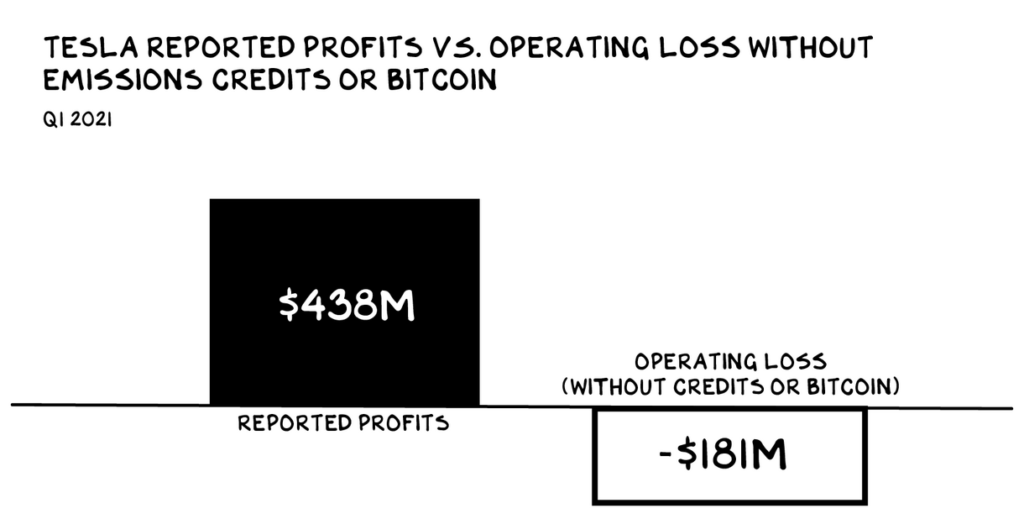Just fancy that!
From the current Private Eye.
Quote of the Day
”Play Hemingway — be fierce.”
- Gertrude Stein — speaking to her dog
Musical alternative to the morning’s radio news
Little Richard | Good Golly Miss Molly | On Muhammad Ali’s 50th Birthday
Long Read of the Day
Battlestar Galactica Lessons from Ransomware to the Pandemic
A truly wonderful long essay by Zeynep Tufecki which is about network insecurity and hacking but is really about why we never learn, even though we’re supposedly the smartest animals on the planet. It starts with the pipeline hack and ends … well, where would you expect? Covid-19.
Unmissable.
The Dead contd.
Many thanks to the readers who emailed about the ‘redevelopment’ of No 15 Usher Island in Dublin. And Mick Fealty (Whom God Preserve) found the YouTube link for the complete version of John Huston’s wonderful movie of the Joyce story, for which link I am deeply grateful, and I hope you will be too.
Well, that didn’t take long
From Axios:
📚 Apple parts ways with author
After an employee uproar over his writing demeaning women and others, Apple cut ties with new hire Antonio García Martínez, the former Facebook employee who wrote “Chaos Monkeys,” Axios’ Ina Fried learned.
Employees circulated a petition yesterday calling for Apple to explain its hiring of García Martínez. It’s not known what he was going to do.
It’s rare for Apple employees to organize publicly on any issue, let alone an individual hiring.
In a passage of “Chaos Monkeys,” García Martínez describes women in the Bay Area as “soft and weak, cosseted and naive despite their claims of worldliness.”
Apple confirmed to Axios that García Martínez was no longer employed, and said in a statement that it has “always strived to create an inclusive, welcoming workplace.”
I read his book — Chaos Monkeys: Obscene Fortune and Random Failure in Silicon Valley years ago, and wasn’t over-impressed. It was essentially a tech-bro miming Hunter S. Thompson — full of stuff that you’d have got away with in Hunter’s time but which looks pretty dodgy after #MeToo and #BLM. Gonzo journalism seems less impressive now. I’m surprised that Apple hired him: must have been because they saw his social-media advertising experience as a boon at a time when the company is aiming to grow its own advertising business. My conclusion is that Apple needs rapidly to improve the ethnic and gender diversity of its panels that hire people (and do more sophisticated due diligence on potential hires).
We get the ‘heroes’ we deserve
The only drawback I’ve discovered since we bought a Tesla last December is that people hold me personally responsible for Elon Musk, who is by any standards a flake of Cadbury proportions. If pressed, I’d say he was a gifted lunatic, and what’s really depressing is the legions of fanboys he seems to have attracted.
(Here’s how to spot a fanboy at 50 paces, btw: he — and it’s generally a male — refers to Musk as ‘Elon’, as if he were a personal friend. At that point the sensible precaution is to check for the nearest exit.)
Musk’s exploitation of his celebrity status would be nauseating if he were just a normal celebrity. But the really insidious thing is the way he’s using it (a) to move markets and (b) to disguise the realities of Tesla’s financial performance.
Scott Galloway has a terrific essay on all this. Lots of great things in it, but a few stood out for me.
Tesla posts an accounting profit, but in its most recent quarter, it was emissions credits (a regulatory program that rewards auto companies for making electric rather than gas vehicles) and — wait for it — $101 million in bitcoin trading profits that morphed earnings from a miss to a beat. What Tesla did not do last quarter was produce a single one of its two premium cars, the Model S or the Model X. Promised redesigns have apparently snarled production. On this topic, Musk has been uncharacteristically CEO-like (that is, discreet).
So this is what it looks like:
Part of the reason Tesla is dominant in the higher-end of the EV market is that it had very little competition for a long time. But now, as Galloway points out, that’s changing. “The innovation gap is closing”, he writes.
And it’s not just car companies coming for Tesla’s fat margins. The industry’s shape-shift from a $100 billion low-margin manufacturing business to an $800 billion high(er)-margin software business has attracted some enormous sharks. The first overnight $100 billion-plus transfer of shareholder value will occur in 2022, when Tim Cook stands onstage in front of an automobile bearing an Apple logo.
Galloway’s explanation for some of Musk’s publicity stunts is that he needs to keep investment and talent flowing into his company as the competition hot up. (The new electric Mercedes S-class limo, for example, is not all that more expensive than a Tesla Model S.) The stunts, Galloway says, help to distract public attention from
anything regarding fundamental analysis (P/E ratios) or sobriety (it’s a car company). The embrace of crypto serves both needs: It’s consistent with his techno-utopian vibe, and it directs the conversation away from the Mercedes EQS or Apple car while providing a shock absorber for earnings misses. The SNL appearance, Dogecoin tweets, Elvish-letter-named kids, tickling of our senses with 420 references and suggestive emojis: It’s David Copperfield, plus 60 IQ points.
The big question (for me, anyway) is: why is Musk’s reality distortion field so powerful?
Galloway is similarly puzzled:
One in five U.S. households with children is food insecure, and we have a man telling his 53 million acolytes to purchase a digital currency so he can sell it at a profit to pad the earnings of a company that’s worth more than automakers producing 60 times the vehicles. And why wouldn’t he? When you tell an innovator he’s Jesus Christ, he’s inclined to believe you. Once we idolized astronauts and civil rights leaders who inspired hope and empathy. Now we worship tech innovators that create billions and move financial markets. We get the heroes we deserve.
We do.
But here’s the really strange thing. The Tesla we have (the Model 3) is a terrific car. It’s a delight to drive, is as agile as any roadster, goes from zero to 60 in 3.1 seconds and yet is quiet and undemonstrative. If you charge it with electricity from renewable sources it’s also reasonably environmentally friendly. So the only question that comes repeatedly to mind is: how did a certifiable fruitcake manage to make such a good product?
This blog is also available as a daily email. If you think this might suit you better, why not subscribe? One email a day, Monday through Friday, delivered to your inbox at 7am UK time. It’s free, and there’s a one-click unsubscribe if you decide that your inbox is full enough already!


